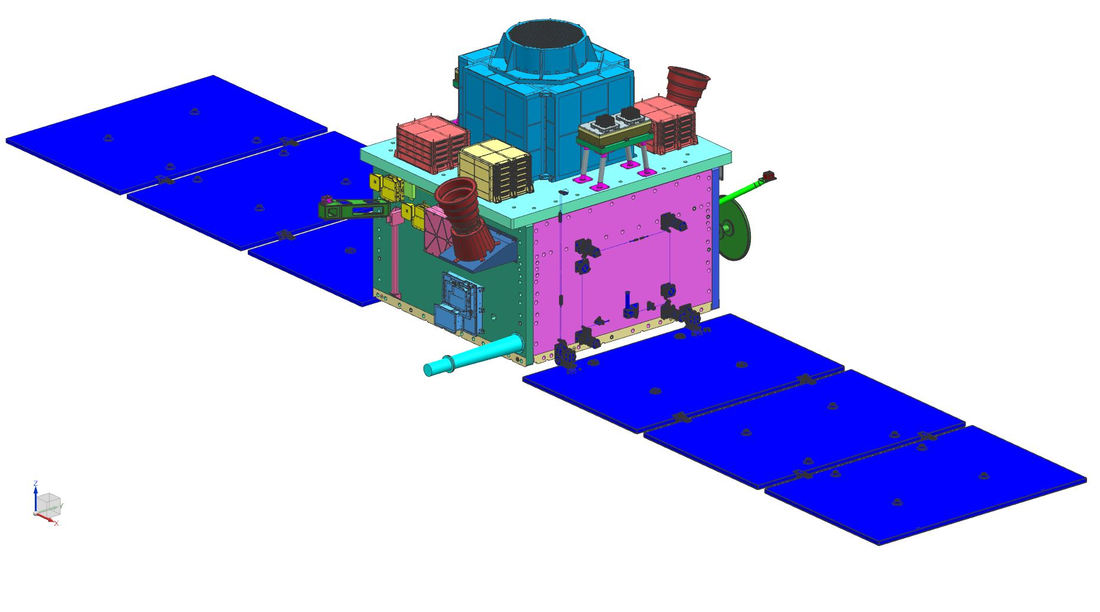XPoSat, India’s first polarimetry mission
The Indian Space Research Organisation is collaborating with the Raman Research Institute (RRI), Bengaluru, an autonomous research institute, to build the X-Ray Polarimeter Satellite (XPoSat) that is scheduled to be launched later this year. Recently, ISRO chairman S Somanath urged Indian scientific institutions to identify talented students and take steps to motivate them in effectively using the data emerging from science-based space missions. He mentioned the XPoSat in this regard.
What is the XPoSat mission?
According to ISRO, “XPoSat will study various dynamics of bright astronomical X-ray sources in extreme conditions.” It has been billed as India’s first, and only the world’s second polarimetry mission that is meant to study various dynamics of bright astronomical X-ray sources in extreme conditions. The other such major mission is NASA’s Imaging X-ray Polarimetry Explorer (IXPE) that was launched in 2021.
Buy Prime Test Series for all Banking, SSC, Insurance & other exams
How are X-Rays witnessed in space?
As NASA explains on its website, X-rays have much higher energy and much shorter wavelengths, between 0.03 and 3 nanometers, so small that some x-rays are no bigger than a single atom of many elements. The physical temperature of an object determines the wavelength of the radiation it emits. The hotter the object, the shorter the wavelength of peak emission.
The field of polarimetry studies the measurement of the angle of rotation of the plane of polarised light (that is, a beam of light in which the vibrations of the electromagnetic waves are confined to one plane) that results upon its passage through certain transparent materials, according to Britannica.
ISRO’s website says that the emission mechanism from various astronomical sources such as black holes, neutron stars, active galactic nuclei, pulsar wind nebulae etc. originates from complex physical processes and are challenging to understand.
What are XPoSat’s payloads?
The spacecraft will carry two scientific payloads in a low earth orbit. The primary payload POLIX (Polarimeter Instrument in X-rays) will measure the polarimetry parameters (degree and angle of polarisation).
The payload is being developed by RRI in collaboration with ISRO’s U R Rao Satellite Centre (URSC) in Bengaluru. POLIX is expected to observe about 40 bright astronomical sources of different categories during the planned lifetime of XPoSat mission of about 5 years. This is the first payload in the medium X-ray energy band dedicated for polarimetry measurements.
The XSPECT (X-ray Spectroscopy and Timing) payload will give spectroscopic information (on how light is absorbed and emitted by objects). It would observe several types of sources, such as X-ray pulsars, blackhole binaries, low-magnetic field neutron star, etc.
Important takeaways for all competitive exams:
- ISRO Founder: Vikram Sarabhai;
- ISRO Headquarters: Bengaluru;
- ISRO Founded: 15 August 1969;
- ISRO Chairman: S. Somanath.



 States and Capitals - How Many States in...
States and Capitals - How Many States in...
 Which is the Fastest Supercomputer in th...
Which is the Fastest Supercomputer in th...
 Important Days in May 2025, List of Nati...
Important Days in May 2025, List of Nati...

